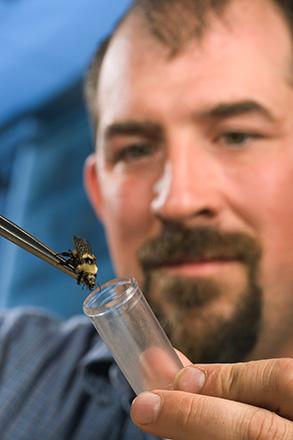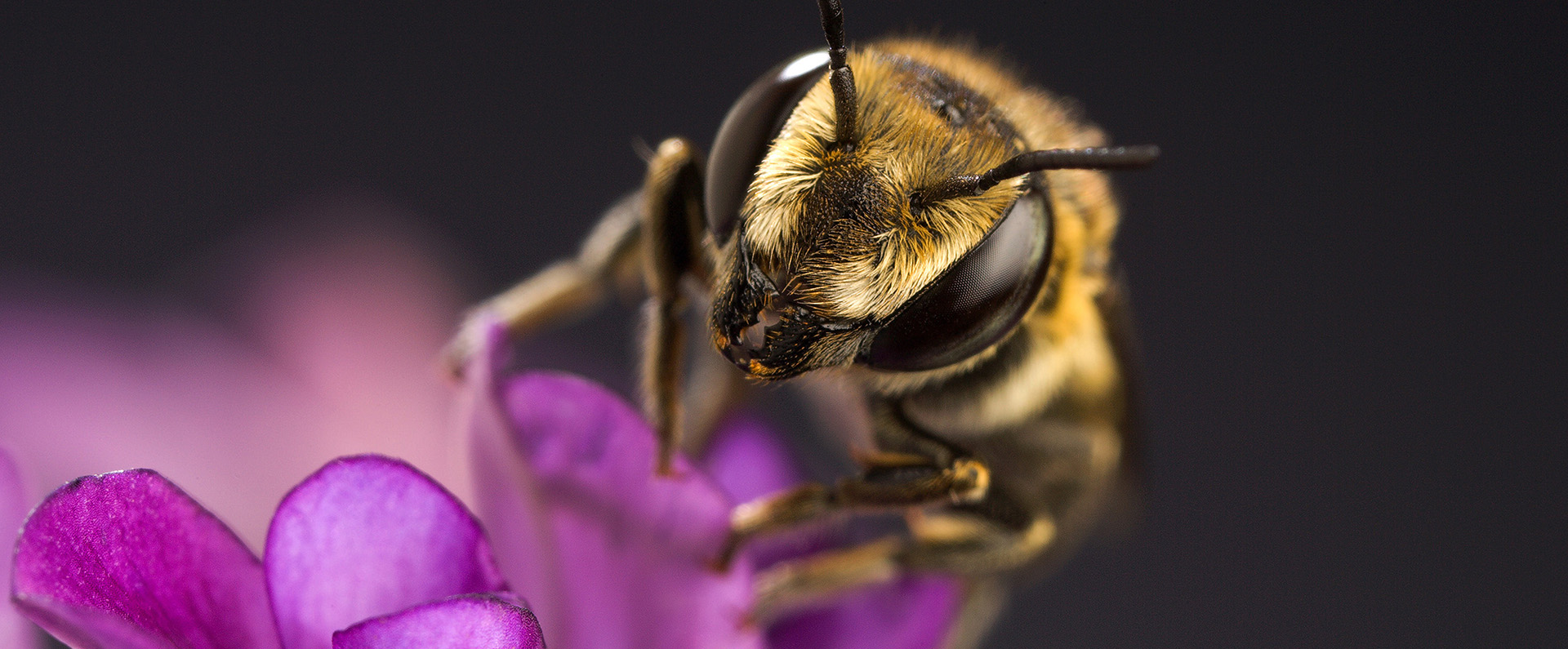Making Bees Stronger

Honey bees and their pollination efforts increase crop values in the United States by more than $15 billion annually. Commercial production of many specialty crops like almonds and other tree nuts, berries, fruits, and vegetables depends on honey bee pollination. A collaboration between ARS scientists and more than 30 national and international institutions resulted in two new pollinator bee genome sequences—the Eastern bumble bee (the North American bumble bee used most commonly for commercial pollination) and the Alfalfa leafcutting bee. This research resulted in the identification of genes associated with behavioral and disease-related traits of these species, as well as of the honey bee, and provided insights into social behavior and other key biological traits—like immune response to pathogens and diseases. While honey bees are attacked by a number of pathogens, little is known about their immune response. Researchers are now targeting genes for immune proteins that are especially responsive to diseases. This information will ultimately result in improved management strategies to promote better bee health.
Related Information
Article:Honey Bee Genetics Vital in Disease Resistance
Article: New Bee Germplasm Collection



